Ovarian cancer risk
For women with an average risk
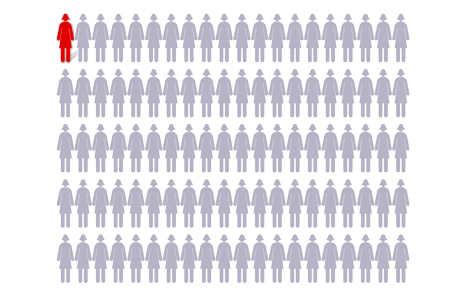
Most women have an average risk of ovarian cancer. About 1 out of 100 women will get ovarian cancer sometime during their lives.
[Chart based on National Cancer Institute (2013). Ovarian Cancer Prevention PDQ—Health Professional Version. http://nci.nih.gov/cancertopics/pdq/prevention/ovarian/healthprofessional.]
For women who have one relative with ovarian cancer
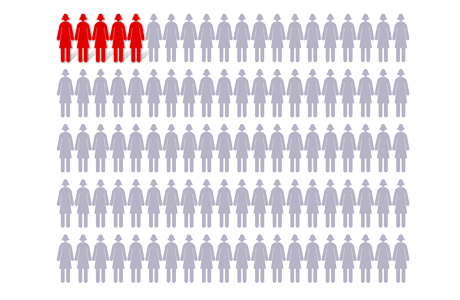
If one woman in your family—such as a mother, a sister, or a daughter—has had ovarian cancer, your risk of getting it is a littler higher than for women who don’t have a family history of the disease. About 5 out of 100 women with one relative who has had ovarian cancer will get this cancer sometime during their lives.
[Chart based on National Cancer Institute (2013). Ovarian Cancer Prevention PDQ—Health Professional Version. http://nci.nih.gov/cancertopics/pdq/prevention/ovarian/healthprofessional.]
For women who have two or three relatives with ovarian cancer
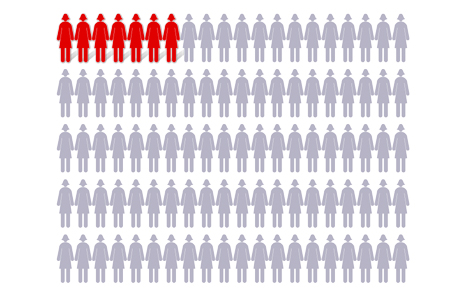
If two or more women in your family have had ovarian cancer, your risk of getting it goes up. About 7 out of 100 women with two or more relatives who have had ovarian cancer will get this cancer sometime during their lives.
[Chart based on National Cancer Institute (2013). Ovarian Cancer Prevention PDQ—Health Professional Version. http://nci.nih.gov/cancertopics/pdq/prevention/ovarian/healthprofessional.]
For women who have BRCA1 gene changes
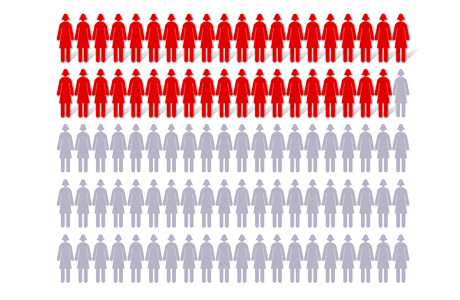
Some women have BRCA1 gene changes. Their risk of getting ovarian cancer is much higher than average. For these women, about 39 out of 100 women will get ovarian cancer by age 70.
[Chart based on National Cancer Institute (2016). BRCA1 and BRCA2: Cancer risk and genetic testing. National Cancer Institute. http://www.cancer.gov/about-cancer/causes-prevention/genetics/brca-fact-sheet. Accessed April 6, 2016.]
For women who have BRCA2 gene changes
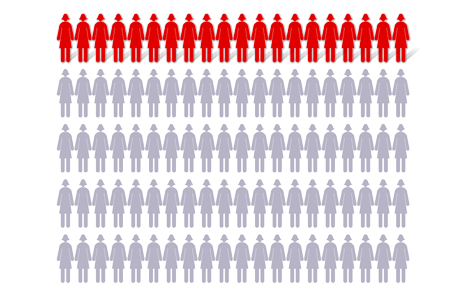
Some women have BRCA2 gene changes. Their risk of getting ovarian cancer is also higher than average. For these women, about 11 to 17 out of 100 women will get ovarian cancer by age 70.
[Chart based on National Cancer Institute (2016). BRCA1 and BRCA2: Cancer risk and genetic testing. National Cancer Institute. http://www.cancer.gov/about-cancer/causes-prevention/genetics/brca-fact-sheet. Accessed April 6, 2016.]
Current as of: December 19, 2018
Author: Healthwise Staff
Medical Review:Sarah Marshall MD – Family Medicine & Kathleen Romito MD – Family Medicine & Wendy Y. Chen MD, MPH MD, MPH – Medical Oncology, Hematology
This information does not replace the advice of a doctor. Healthwise, Incorporated, disclaims any warranty or liability for your use of this information. Your use of this information means that you agree to the Terms of Use. Learn how we develop our content.

